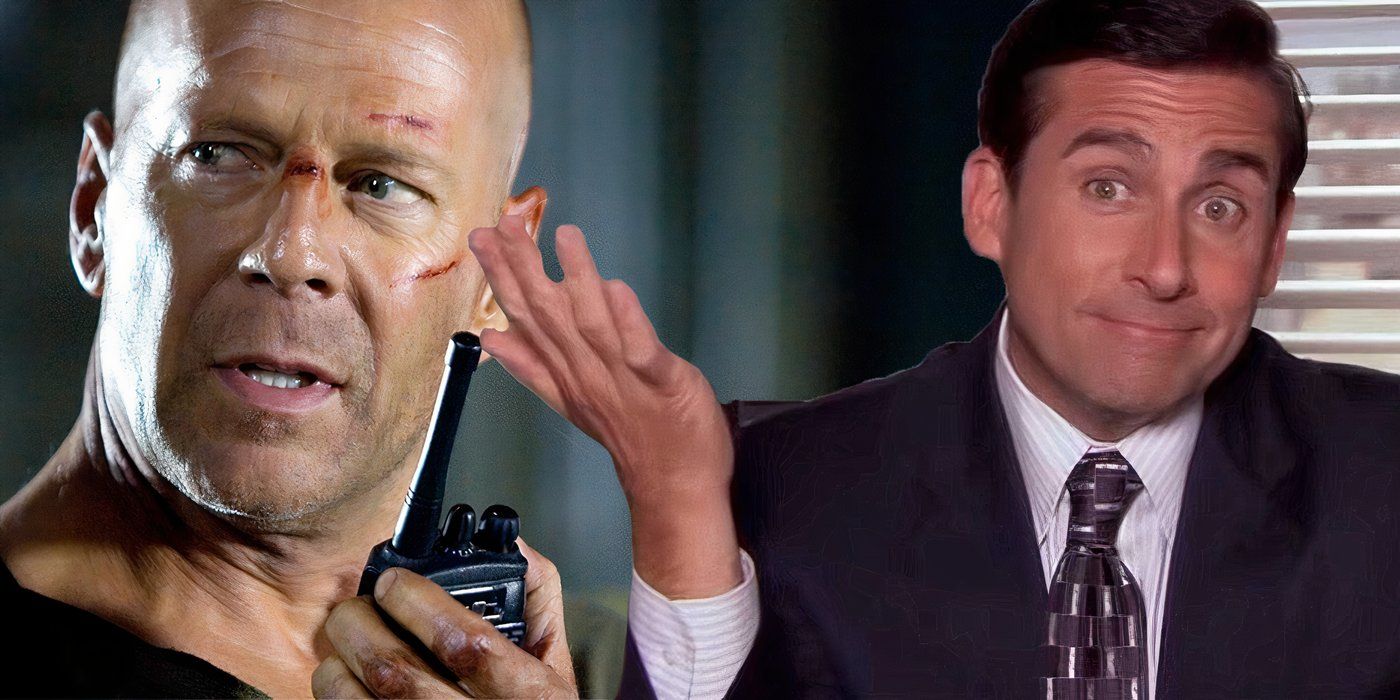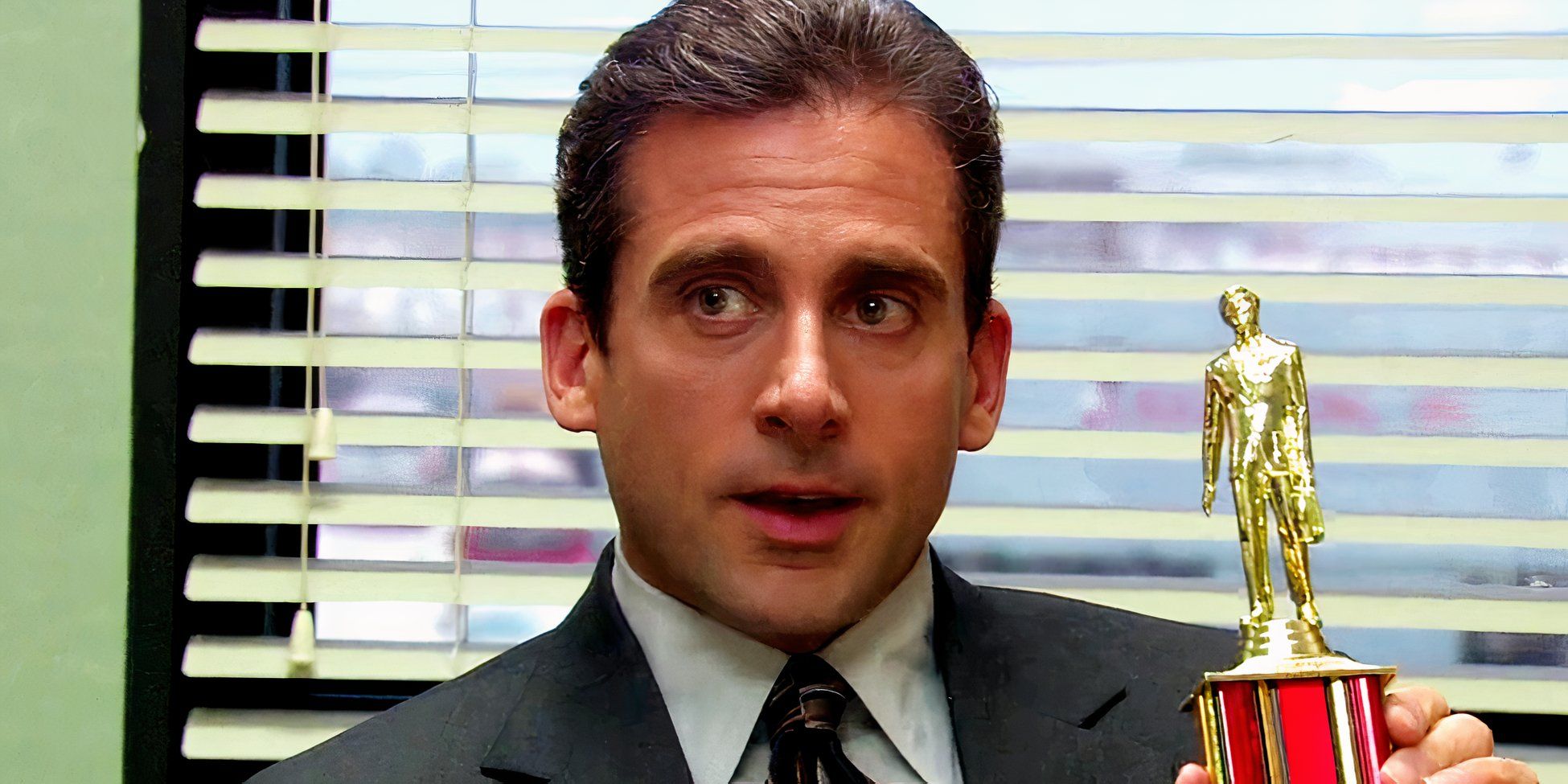
In the 4th season of The officeboss Michael Scott (Steve Carell) goes on a rant about Die Hard 4but what was supposed to be an off-the-cuff joke has now become reality in the movies. Michael wasn't exactly the sharpest tool in the shed, often completely oblivious to others' feelings and with a pathological need for attention. This was tempered by a natural sweetness and desire to make others happy that saved Michael in The office of its most offensive moments and allowed his co-workers and the public to consider him not harmful, just an oblivious idiot.
Still, there were a few occasions – albeit very few – when Michael's natural charisma and ability to connect with others shined. Less frequently, but still exists, Michael occasionally had moments of intelligent observation or astute analysis this revealed that there was a functional brain buried beneath his chronic immaturity and clueless nature. One of these moments happened in one of the The office the best episodes of season 4, when Michael, in his own way, charmed some new co-workers.
Michael Scott pointed out the problem with Die Hard 4 in The Office season 4
It is completely disconnected from the first Die Hard
In The office Season 4 Episode 4 'Money' Michael Gets a Second Job in a call center to earn more money and get out of some financial troubles and – to no one's surprise – his unconventional personality and approach to work irritate his manager but endear him to his new co-workers. Part of the problem is that the always sociable Michael often distracts his co-workers with stories and jokes. One of these conversations is Michael sharing his opinions on Live Free or Die Hard and why it's so different from the rest of the franchise:
“You know what, here's the problem Die Hard 4. Die Hard 1John McClane, he's just a regular guy, you know? He's just a regular New York cop who gets his feet cut off and gets beaten up, but he's just a regular guy. In Die Hard 4he's jumping from a motorcycle into a helicopter in the air, you know? He is invincible. Just kind of lost what Die Hard was. It is not Terminator.”
Sure, the moment is funny – another example of Michael talking to co-workers, but with an added layer of humor thanks to the fact that these co-workers aren't jaded with him like his subordinates at Dunder Mifflin are. Instead, someone tells him that “should be a film critic”, which is absurd considering the fact that it was Michael, before manager Michael fell again. Even with the humor of the moment, which was probably all improvised by Carell, Michael made some insightful points.
Michael Scott described a common problem with action movie franchises
Sequel Bloat is the nature of big tentpole franchises
The thing is, Michael isn't wrong about Die Hard 4. Your only myopia is that Live Free or Die Hard isn't the only offender when it comes to bloating in the wakewhich happens in practically every action film franchise. When the crux of an action movie is just that – action – it means audiences expect more and more action with each sequel: bigger stunts, more intense action, and inventive fight choreography they've never seen before. In most films, the action serves the plot, but the opposite is often the case in action franchises: the story serves as a vehicle for big stunts or action sequences.
It's unfortunate because the bigger an action franchise gets, the further it gets from its roots, as Michael pointed out about Die Hard. But there's no way a studio would approve a bigger budget unless the film itself is bigger in every way. That's how it works with action franchises, and Long-running tentpole franchises are virtually all action-oriented in some way. That's why they're popcorn movies on the big screen. Still, while it's inevitable, some film franchises have taken this to the extreme.
The Fast and Furious franchise is the worst offender, proving Michael Scott's point
It's not the only glaring example, though
Of course, The worst offender in this regard is the Fast and Furious franchise, which has long abandoned any sense of being based in reality and instead embraced an increasingly absurd premise. It's long been a running joke among fans how much the franchise has changed since it began. When it was released in 2001, Fast and Furious was essentially a Breaking point remake, with the simple plot of a robbery swapping surfers for street racers.
The story has grown to unbelievable proportions since then, with physics-defying stunts, global espionage, government conspiracies, characters returning from the dead, and more. It got so bad that has now become a meta-joke in Fast and Furious the films themselveswith Tyrese Gibson's Roman Pearce even seriously speculating on a Fast and Furious movie that they are in a comic book universe and therefore invincible. Their reasoning is that there is no way normal humans can survive all of their near-death experiences without a scratch, so they must be superheroes. It's hard to argue with Roman or Michael Scott's logic.
It's hard to argue with Roman or Michael Scott's logic.
While Fast and Furious is by far the most egregious example of franchise sequel bloat, is not the only one. The increasingly complicated and large-scale ventures that Tom Cruise and Christopher McQuarrie have committed to Mission: Impossible the film's stunts have become the stuff of legend. Avengers: Endgame is arguably the greatest culmination of a long franchise arc ever, but the MCU has truly set itself up for future failure as no film will ever live up to the Infinity Saga's epic, cliffhanger finale. Michael Scott may be a fool, but he was occasionally known for making good arguments, and his Die Hard 4 complain The office It was absolutely one of those moments.
